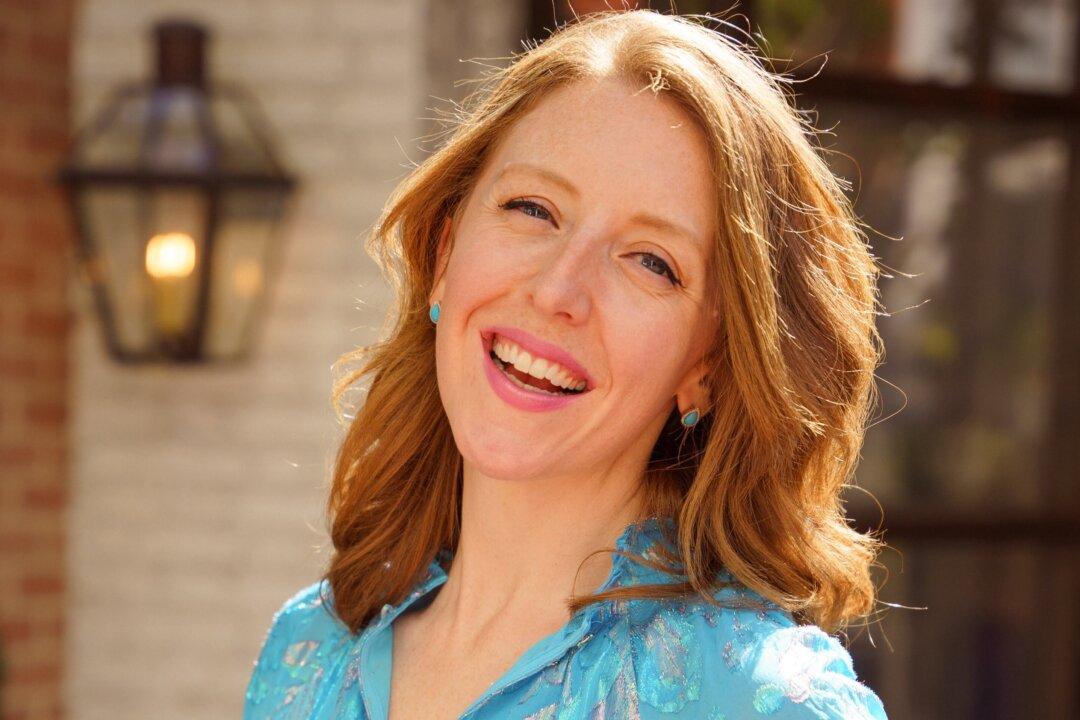Persistence, failure, responsibility, and even regret lie along the path to true happiness, according to author and professor Gad Saad.
Mr. Saad, who holds a doctorate in marketing, defines happiness as “an enduring sense of a life that has been lived well,” he told The Epoch Times.
“It’s a very intuitive thing,” he said.
“If you’re sitting on your proverbial porch when you’re 85, looking back on your life and you say, ‘You know what? I’ve really lived a good life. I’ve had a great marriage, I’ve raised great kids, I’ve had a job that gave me purpose and meaning, I’m always playing around, there are few things that I regret in life’ ... that’s what I mean by existential happiness.”
True to his name, Mr. Saad is content and self-assured. In fact, he was prompted to write “The Saad Truth about Happiness” in part because of this reputation. People often ask him how he can keep a playful attitude while tackling thorny issues, he said. He’s used to hearing, “What’s your secret, professor Saad?”
This question led him to begin to consider the question of happiness. “If you would have asked me three years ago when ‘The Parasitic Mind’ came out if I, at that point, had an idea to write a book on happiness, I would have said ‘no,’ but that’s the beauty of life ... there are all these sort of serendipitous things that happen,” he said.
Mr. Saad is very active on social media, and he noticed that his more prescriptive posts seemed to especially resonate with people.
“As an academic psychologist, I’m usually in the sphere of descriptive behavior—I simply try to describe why people do the things that they do,” he told The Epoch Times.
But he found that especially online, a lot of people were looking for guidance.
All the same, tackling the huge topic of happiness was daunting, he said. Much ink has been spilled in this pursuit, after all.
More Than Positive Thinking
Although Mr. Saad writes that a “silver-lining mindset is truly a vaccine against life’s vagaries,” and that we can train ourselves to think in a more optimistic, happier fashion, he recognizes that it takes more than positive thinking to become happy. His book also covers the realities of regret, rejection, and setbacks in everyone’s lives.“I knew the book would have to have a section on regret, since so often when we look back on our lives we are shackled by looming intrusive thoughts of regret that we didn’t do this or we did that,” he told The Epoch Times. In fact, he writes that regret, especially over things we neglected to do, can eat away at us “like a flesh-eating fungus.”
Taking meaningful action today to achieve happiness will eradicate this type of regret, he writes. And “anticipatory regret”—the fear of what may happen if one does not take action—can be useful in spurring people to work toward achieving their life goals.
He also addresses the value of persistence and grit when facing failure and rejection—as we all do—and recommends adopting an “anti-fragility” mindset:
“People can never be maximally happy if they navigate through life with a brittle, fragile personality or mindset,” he writes. “Whether referring to wine, trees, human lungs, or human minds, among countless other biological systems, we benefit from being anti-fragile.”
Personal Responsibility Versus Victimhood
Mr. Saad said on “American Thought Leaders” that he and Jordan Peterson are preaching something that he thinks “should be obvious to most well-functioning people, which is that personal responsibility ... made the West great.”Those with an internal locus of control take more responsibility for their lives, he said. These people view things that happen to them as their own doing.
“So [they think], ‘I did well on the exam because I’m smart and I studied well.’ On the other hand, [an example of] an external locus of control would be ... ‘I did poorly on the exam because [of] the professor ..., because it’s written in the sky, because it’s God’s will, because it’s destiny.’”
“As you might imagine, people typically attribute successes internally and attribute failures externally. But as you [also] might imagine, many of the important initiatives that you undertake in life are going to require that you get off the proverbial couch and have personal agency,” Mr. Saad said.
Today’s “victimology ethos” is driven by an external locus of control, he said. For example, he said, people who are convinced of their victimhood think: “I’m not doing well in life because I’m a victim because of something that happened to my ancestors 300 years ago. Let me wallow infinitely in the pity pool.”
“Whereas I argue that very few people have had the tragic childhood experiences that I had growing up in the Lebanese Civil War,“ he said. ”It is part of my identity, it is part of my history, but yet I don’t wallow in it. To the contrary, I use that as impetus to succeed in life.
The Right Spouse, the Right Job
The first keys to happiness Mr. Saad addresses in “The Saad Truth About Happiness” are the key life decisions of choosing the right life partner and the ideal job.These two key decisions are not the only big ones in life, but “they guarantee a great bucketload of either happiness or misery,” he said.
“When I wake up in the morning, if the person I wake up next to is someone that I like and appreciate and respect, well, that’s a better thing than if I wake up next to someone I can’t stand. Then I put my feet on the floor and I’m heading off to my job. If that job gives me a great sense of purpose and meaning, I’m well on my way to climbing Mount Happiness.
Choosing a Mate: Feathers Matter
While we can never guarantee that the choices that we make are going to ensure us happiness, Mr. Saad told The Epoch Times, “There are certain tried-and-tested maxims [about mate choice] that increase the probability of us being happy.”Mr. Saad contrasts two ideas from evolutionary psychology: that “opposites attract” and that “birds of a feather flock together.”
“The research is unequivocally clear that when it comes to long-term success of a marriage or a long-term romantic union, it’s overwhelmingly the ‘birds of a feather flock together’ maxim that’s operative,” he said.
But the “feathers” you select matter, he added. “It’s not eye color, it’s not hair color, but rather it’s shared life goals, shared belief systems, shared attitudes towards foundational principles.”
The Saad Truth About Feminism
Radical feminism has in many ways complicated mate selection for both men and women. Mr. Saad writes, “Militant feminism ... is an ideology that has imparted immeasurable misery on millions of women, because it denies human nature and the reality of sexual differences.”Militant feminism is an example of an “idea pathogen,” or a parasitic idea that causes people to slowly walk to “the abyss of infinite lunacy,” Mr. Saad said.
“Social constructivism is the idea that we are all born ... without any predispositions or biological imperatives, and it’s only socialization that makes us who we are. Biophobia is the fear of using biology to explain human affairs,” he said.
Radical feminism piggybacks on these ideas by arguing that there are no real evolutionary, biologically based differences between men and women, he said. “[It teaches that] women are taught to be more sexually restrained, whereas men are afforded greater leeway when it comes to that. Well of course that’s nonsense in that, yes, it is true that that socialization process operates in this manner, but it operates in this manner for clear biological reasons. Women incur a much greater cost in the mating market if they make a poor choice.”
This may seem unfair, Mr. Saad said.
“But it’s called reality. It’s called nature. It’s called biology.
“Equity feminism [as opposed to radical feminism] makes sense because it says that men and women should be treated equally under the law and of course, most reasonable people would support that.” But that doesn’t mean that men and women are indistinguishable from each other.
For instance, he said, the prospect of having meaningless one-night stands is much more attractive to men than it is to women.
Personal Agency Leads to Happiness at Work
Occupational happiness hinges on two criteria: creativity and freedom, according to Mr. Saad.He argues that any profession or job that allows one to satisfy a creative impulse will lead to purpose and meaning.
“I could be a stand-up comic creating a new routine, I could be a chef, I could be an architect, I could be an author or a podcaster. All of these professions, while very, very different, share one thing in common: the person in question is creating something new out of nothing. All other things equal, that gives me great purpose and meaning,” he said.
The second element to having a happy occupational life, according to Mr. Saad, is what he calls temporal freedom—the ability to have control over one’s time while making a living. Having little leeway while working is not a pathway to personal dignity, he told The Epoch Times.
“If possible, if you can hit those two marks [of creativity and freedom], I think you’re likely to be happy at your job,” he said.
To those whose occupational freedom and temporal freedom are limited, he advised finding outlets outside of work hours.
“You can instantiate these things once you get off work,” he said.
“An insurance adjuster is important and a bus driver is important, but what about when you finish your work, instead of going and watching mindlessly four hours of TV, you go and enroll in that ceramics course which you’ve always hoped to take?
“There are ways in which I can still immerse myself in creative processes even if it’s not at my job.”






